Interview with Roshi Bernie Glassman, Conducted in Montague, MA USA in June 2016
Transcribed by Scott Harris
Preface: Bernie requested to bring to view his questions, intentions and themes that were shaped by over twenty years of co-leading bearing witness retreats in Poland, Rwanda and the Black Hills. The narrative of events that led to the first retreat is described in the article “Bernie’s Training: Bearing Witness”.
Below is part 1 of this interview. Part 2 can be found here.
BERNIE: So, I just want to talk and lay out the history of the retreat in Auschwitz. When I entered Birkenau the first time, I was overwhelmed by the sense of souls. And at that time I called it a remembrance of souls. In English it’s an interesting word—remembrance or re-membering, putting together of souls. Now, I did not fix a label on the souls. If you think of it—and I didn’t think of it at the time, at the time I just thought I was remembering souls. But there were so many souls there. Definitely it wasn’t just Jewish souls. There’s Poles, and Gypsies—so many different souls. So at this time, that’s a feeling I had, and I didn’t know what that meant, for remembrance of souls. At that time I didn’t go deeper into “what does this all mean?” I was just overwhelmed by remembrance of souls. And I decided I need to sit here until that becomes clear—perhaps as I’d done before. And I felt I had to do it here. I had to sit until I had that experience that cleared it up for me in some way. I had to go deeper.
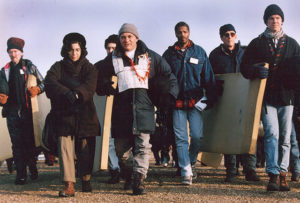 I don’t know when I decided that I would invite other people to join me in that. It was either then, or on the plane going home with Eve—I don’t remember now, things get a little mixed up. But by the time I got home I decided that I was going to invite people to join me, and that it would not be a Jewish retreat. That it would be a retreat honoring all those souls that had been desecrated. And so therefore I spent a year and a half inviting—before we opened it up to people—I first invited certain people to the retreat. And by inviting, it meant that I was going to pay for them.
I don’t know when I decided that I would invite other people to join me in that. It was either then, or on the plane going home with Eve—I don’t remember now, things get a little mixed up. But by the time I got home I decided that I was going to invite people to join me, and that it would not be a Jewish retreat. That it would be a retreat honoring all those souls that had been desecrated. And so therefore I spent a year and a half inviting—before we opened it up to people—I first invited certain people to the retreat. And by inviting, it meant that I was going to pay for them.
So there were certain people I invited. And I tried to invite as many leaders of different faiths — The first retreat we probably had about eight, nine different faiths represented — and probably had twenty countries. And because I gave a lot of scholarships (because certain people didn’t have money, but I wanted them there), we raised money for that first retreat. And it was a very important retreat for me. I thought it was going to be one retreat. That’s it. At the retreat we, Eve Marko, Andrzej Krajewski and I, decided that it had to go on.
I tried different things to make the theme be how we treat others. And most people who came were fixated on one group who treated another group badly. They couldn’t generalize. Whether it was the Palestinians being treated badly by the Jews, whether it was the Jews being treated badly by the Germans—and at Auschwitz there were so many groups that were treated badly. And it went on and on, because the seeds of hate and being mistreated . . . and very tenacious, and keep happening. So even though I tried to make that a theme, and bring people that even now are still mistreating each other, or hating each other, I try to make that the theme—to deal with that. It was very difficult to do that. So it’s a theme that goes on and on. I don’t think it’s the whole retreat. But every time you choose a place to do it—of course I chose Auschwitz as the site for this. Obviously a lot of Jewish people came, and they felt that this was their retreat, they owned it.
Later on we did some other retreats at some other places. I still have difficulties to separate the place from how we treat each other. In Rwanda, we couldn’t just separate that. It was hard to, even when we had Belgians and other people who were quite affected. We couldn’t separate. And then when we did it with the Lakota, you couldn’t separate it and talk in general. The Lakota live there; it had to be about them. As humans we tend to feel that we’re the only ones being treated this way. It’s very hard to make the space of our work large.
I decided to make these retreats, and I went to my old, dear friend, who has passed away, Rabbi Zalman Schachter-Shalomi. And I told him about my thoughts. This is about twenty-five years ago—he had just had cancer. And we all thought he was going to die. But he didn’t, he waited ten, twenty-five years to die. I went to him, and talked about my ideas, and asked how does he feel about it. I was hoping he wasn’t going to say ‘this is for the Jewish people’. He didn’t do that; he’s a much larger person. He said to me he felt it was very important, to do what I’m doing, and that he would have done it by now if he hadn’t had this cancer. And he would go if he didn’t have this cancer. So he said, “Please do it.” And he said, “but one thing, start with the living.”
I take that “start with the living” in two ways. How did the people live before this atrocity, or whatever it is, happened to them? Now for example, if we take the Lakota. Before their holocaust they lived in encampments, in the woods. Afterwards they lived in reservations. And it goes on and on. There’s always a before and after.
So there, we were doing it at Auschwitz, we tried to look at the ‘before’. We started off in Krakow, and particular, in Kazimierz, where almost all the Jews were killed. So we started there.
And we talked off and on through the years how this was progressing. The first thing I did was I tried to find some Polish person, living in Poland that would work with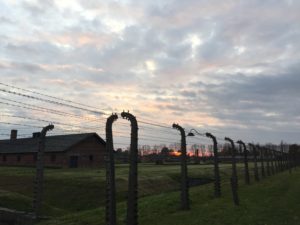 me in how to set this up, how to organize. I was lucky; Andrzej Krajewski was the ideal person. He had been in the underground, part of the solidarity movement in Poland. He was also a Zen student, like me. And because he was a Zen student, when he heard what I wanted to do, he says, “Oh, I can help you, create a Sesshin [a meditation intensive retreat in the Zen lineages].” I had no thought of creating a Sesshin. He got that pretty soon… Of course we talked a lot, for a year and a half before it happened. But even a year and a half later, the Polish people who came expected a Sesshin. So they were all surprised.
me in how to set this up, how to organize. I was lucky; Andrzej Krajewski was the ideal person. He had been in the underground, part of the solidarity movement in Poland. He was also a Zen student, like me. And because he was a Zen student, when he heard what I wanted to do, he says, “Oh, I can help you, create a Sesshin [a meditation intensive retreat in the Zen lineages].” I had no thought of creating a Sesshin. He got that pretty soon… Of course we talked a lot, for a year and a half before it happened. But even a year and a half later, the Polish people who came expected a Sesshin. So they were all surprised.
But in my mind, Andre was perfect. His father was a Catholic intellectual, killed at Auschwitz. His mother was a Jewish intellectual who escaped the Holocaust by fleeing from farm to farm in Poland, carrying this young boy and hiding him. Then of course, after the war he hid the fact that he had a Jewish mother, so that he would not be beat up by the anti-semitics. But eventually, as a youngster he was assaulted by his friends, and beaten up. They’d call him, “Dirty Kike.” And he’d run home, and say to his mother, “What’s going on here?” And she says, “Well, it is true. I hid this from you because of how people treat people.”
So this becomes another big theme for me on this retreat. So first, how we treat each other; The second—how our life gets formed by the fears we have. And for me a natural component was that there were people that waited ten years before they could come to the retreat. That is, they wanted to go, but they were afraid to. And it took them ten years to just get there.
There was a woman who had a stone for somebody who died in Auschwitz – she gave it to a man named Heinz Jurgen Metzger, a beautiful man, and she told him she tried to get that stone to Auschwitz three times. First she couldn’t get a ticket. Second time, she got to Poland, and had to turn back. Third time she got to Auschwitz, and then had to turn back. She couldn’t go, out of fear. So she gave it to him so he could do it, and then she could visit. So the notion of fear became an important one for me. How do you work with that, in terms of this retreat?
So, time goes on. I think it was either the first or the second retreat—we had a man that was at the retreat with his wife. He had been at Auschwitz. He was Catholic. He had been at Auschwitz for the whole time of the concentration camp, and until the release when there was a final march at the release. But he was there the whole time. He went through horrible things. He was an artist. After the war he became Poland’s leading set designer. For fifty years he never told anybody that he was at Auschwitz.
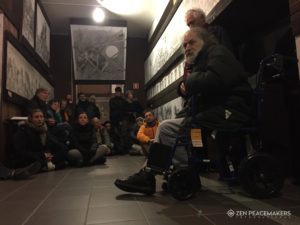 He had a stroke. And as part of his recovery he started to draw his remembrances. He called them his bearing witness. Amazing drawings. And I had a lot of time to talk to this man. And the thing that struck me the most is that with all that he went through, what he shared was the experience of love—not of any hatred of any kind towards anybody, the Nazis, the Kapos.
He had a stroke. And as part of his recovery he started to draw his remembrances. He called them his bearing witness. Amazing drawings. And I had a lot of time to talk to this man. And the thing that struck me the most is that with all that he went through, what he shared was the experience of love—not of any hatred of any kind towards anybody, the Nazis, the Kapos.
Now just a sideline—on that first retreat we asked people to read the text of a book by Yehiel De-Nur, known by his pen-name Katzetnik, which means a person of a concentration camp. The book is called Shiviti. That book was out of print when our retreat happened. I thought it was such a powerful book that I thought that we should publish it. So we had it at the first retreat. The guy had been living homeless in Tel Aviv for quite a while, but now had an apartment. But he was in hiding. He didn’t deal with people. He said he wanted the title to be “I Could Have been the SS” And the publisher wouldn’t do it. They said, “It’s too much. We can’t publish it with that name.” They didn’t let him do it, but that’s what he wanted.
Question: You spoke about Auschwitz not being a retreat as a response to one thing, for the Jews, about the Holocaust, for example. You spoke about a larger context of how we treat others. You also spoke about the very individual and personal stories of people’s fears. What would you say to those who are challenged by holding both aspects at the same time? The personal and the universal?
Bernie: So I would love for people to be able to come away from this seeing how we treat others. We have so much hate in us, so much bile. And I’m going to get to some stories, which illustrate that. I don’t expect anybody to change their opinions.
One story which is amazing for me—one person came to many of these retreats, hearing me say these words each time—the retreat before last, she told me, “Bernie, you’re wrong. It’s not about all that. It’s about the way the Germans treated the Jews. That’s what this retreat is.” She couldn’t change. But you can’t say I’m wrong. I feel that. If you feel different, you feel different. I don’t expect everybody to feel how I feel. And so to see some of these holocausts, and to universalize it is not easy. We get pulled down to our own thing, which is so big. I know that. But that doesn’t mean I can’t try. So in all those years I kept looking for things that can enlarge the scope. And little by little some things happened. But it was always difficult.
I’m going to go back to the first retreat. A man, a German stood up and talked about something in his life. He had an uncle that was his favorite uncle. And whenever the family all got together, everybody ignored this uncle. He loved this uncle. But everybody ignored this uncle. And he found out a few years before this retreat (his first retreat) that his uncle had been an S.S. officer, and sent to Auschwitz to work. And when he saw what was done at the camp, he rebelled. He said, “I can’t be part of this.” And they castrated him because he acted like that. And they kicked him out of the S.S.
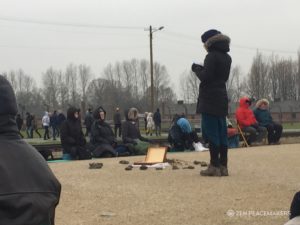 Now this fellow was quite a liberal, so in a sense that should have made his uncle a hero. For him it should have made his uncle a hero. But his family—whom he loved also—ignored this uncle. And he had to live with that dichotomy. How could they for all these years ignore his uncle who stood up for what he thought was right?
Now this fellow was quite a liberal, so in a sense that should have made his uncle a hero. For him it should have made his uncle a hero. But his family—whom he loved also—ignored this uncle. And he had to live with that dichotomy. How could they for all these years ignore his uncle who stood up for what he thought was right?
And then later on, the same fellow suggested that at the Auschwitz retreat we chant every day the names of the people who died there. And we actually added on the people who might be relatives. And he said, “I suggest that we also chant for the names of the people who worked there. They’ve gone through as much hell as anybody else.”
Out of a hundred people at the retreat, about half of them threatened to leave the retreat. “We can not open our hearts to that extent.” I was talking about how we treat others throughout the whole universe. Here we’re being asked to open our hearts to those who served pain . . . But half the people could not open, and said if we did such a thing, they were leaving.
Question: What do you think, why did they resist?
Bernie: That we should include those people in our thoughts for remembrance.
Question: But why not include them?
Bernie: Why not? Because they couldn’t help it. They couldn’t tolerate it. The hate was so huge. I wasn’t at that retreat. I came home, and heard about it first from Andrzej, this Polish man—but then from many people. And of course they didn’t chant those names, because the retreat would have ended.
So I decided that the next retreat, I would be there and that the theme of that retreat would be what that guy brought up—opening our retreat to the perpetrators, whatever they’re called. And that became the theme in the morning council. But in the evening we had councils for the whole group, with that as the theme, and it was difficult.
One of the women who was going to most of our retreat, and Israeli, she early on had been in the Israeli police force, and then got involved in something called N.V.C., Nonviolent Communication. And she became a teacher of N.V.C. She came up to me one evening after council, and said, “Bernie, if you weren’t here, I would kill this guy.” So with all of her training, and all of what we were trying to do and all, she was still ready to kill the person for bringing up the thought.
I think it took us another couple years, and we started to do that—open it up. And we made a process of thinking of the aggressor within us. We made that a process. And that became very important. So it took ten/fifteen year—I don’t know how long it took before we could do that. So if I go back to my initial entering Birkenau, being overwhelmed by all the souls—of course it had these souls. But we took ten years to even touch them. So for me that was such an important step. And for some, “You’re crazy, man!”
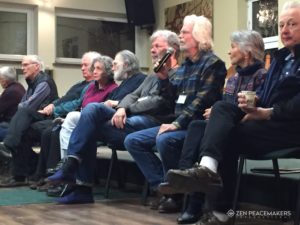 So I’m sure we can open up further, and get more people . . . There are always individual cases. One year we had a beautiful Imam at the retreat. An Imam is a Sufi clergy—not necessarily Sufi, he happened to be Sufi. He lived in Israel, in Yaffa, and was married to a Jewish girl. A beautiful guy, a beautiful gal, they had some children. She was a Tzabra, that is, was born in Israel. When she got married to the Imam (a sweet beautiful guy), her father wouldn’t see her or his grandchildren. And I had him go up and talk one of the evenings that we had people talk. I had him talk.
So I’m sure we can open up further, and get more people . . . There are always individual cases. One year we had a beautiful Imam at the retreat. An Imam is a Sufi clergy—not necessarily Sufi, he happened to be Sufi. He lived in Israel, in Yaffa, and was married to a Jewish girl. A beautiful guy, a beautiful gal, they had some children. She was a Tzabra, that is, was born in Israel. When she got married to the Imam (a sweet beautiful guy), her father wouldn’t see her or his grandchildren. And I had him go up and talk one of the evenings that we had people talk. I had him talk.
And after that, an American came up to me—from California—and said, “How dare I invite an Arab to this retreat? And in addition, to even let him talk here? How dare I?” I said, “Oh, is that a problem?” I said, “You know, I talked about how we treat others, can you look at if anything is coming up for you?” He says, “Don’t give me that bullshit. You should not be doing that.” So I said, “OK. Let’s at least do this. Come with me. Let’s go to the Imam, and you talk with him.” He did. His mind got somewhat peaceful. At the end of the retreat he said, “My family and I had a fantastic time at this retreat. But I still warn you, don’t invite Arabs.”
Those are the cases that are so important to me. Not that I only want to see the horror that remains. I would love to see that we make transformations, and can allow others into our hearts, but I know that’s not easy. I didn’t feel anything amiss with this guy. In fact, this guy was a reason for having this retreat.
So as we went on, for me the retreat became more and more about “How do we treat others?” in an expansive way, and my thinking kept going, “How do we do that?”
There’s got to be other ways of doing it, and not just focusing on one. When you focus on one group, automatically you create problems. Council is a testament to that. In Council you try to hear different voices. So I would think that now is a great time to experience all the different voices that are still causing pain to others. What are our voices?
The process that we let in, the dealing with the aggressor within us has been one of the most important processes. How do we expand that? That would be an interesting thing to me.
Question: And by speaking, and looking at the aggressor, doesn’t mean, “dismissing the pain of the victim.”
Bernie: No, that’s part of it. Yeah. You’ve got to bring it in. You’ve got to bring it in.
Continued in Part 2
Learn more about the annual Zen Peacemakers Auschwitz-Birkenau Bearing Witness Retreat

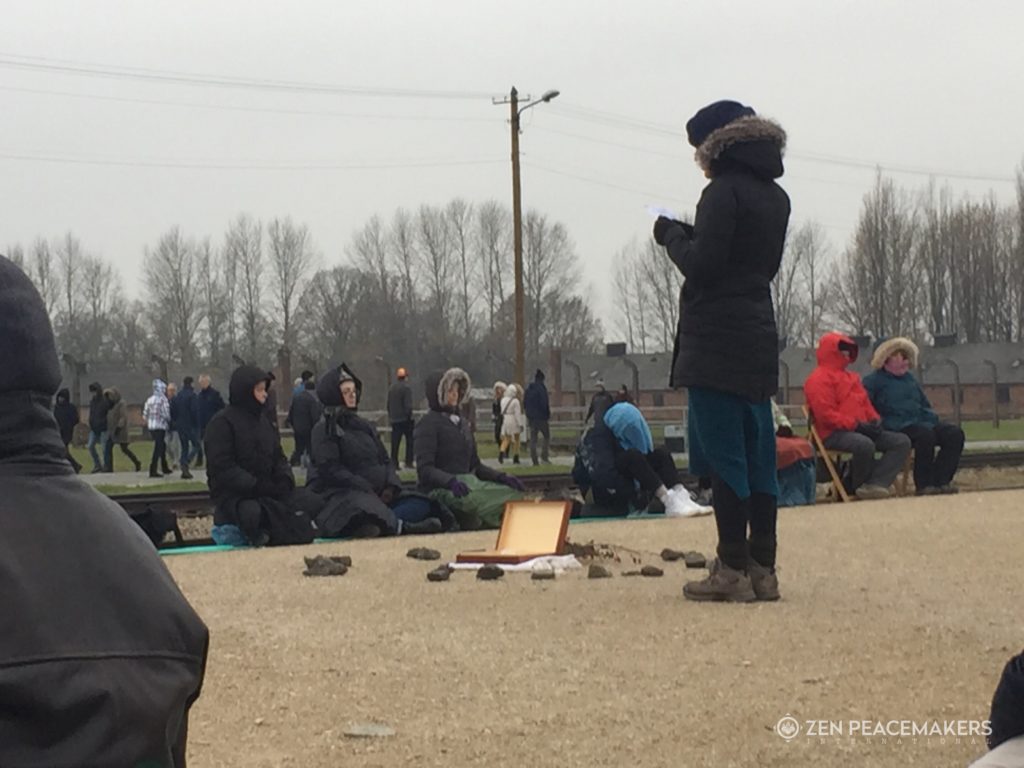
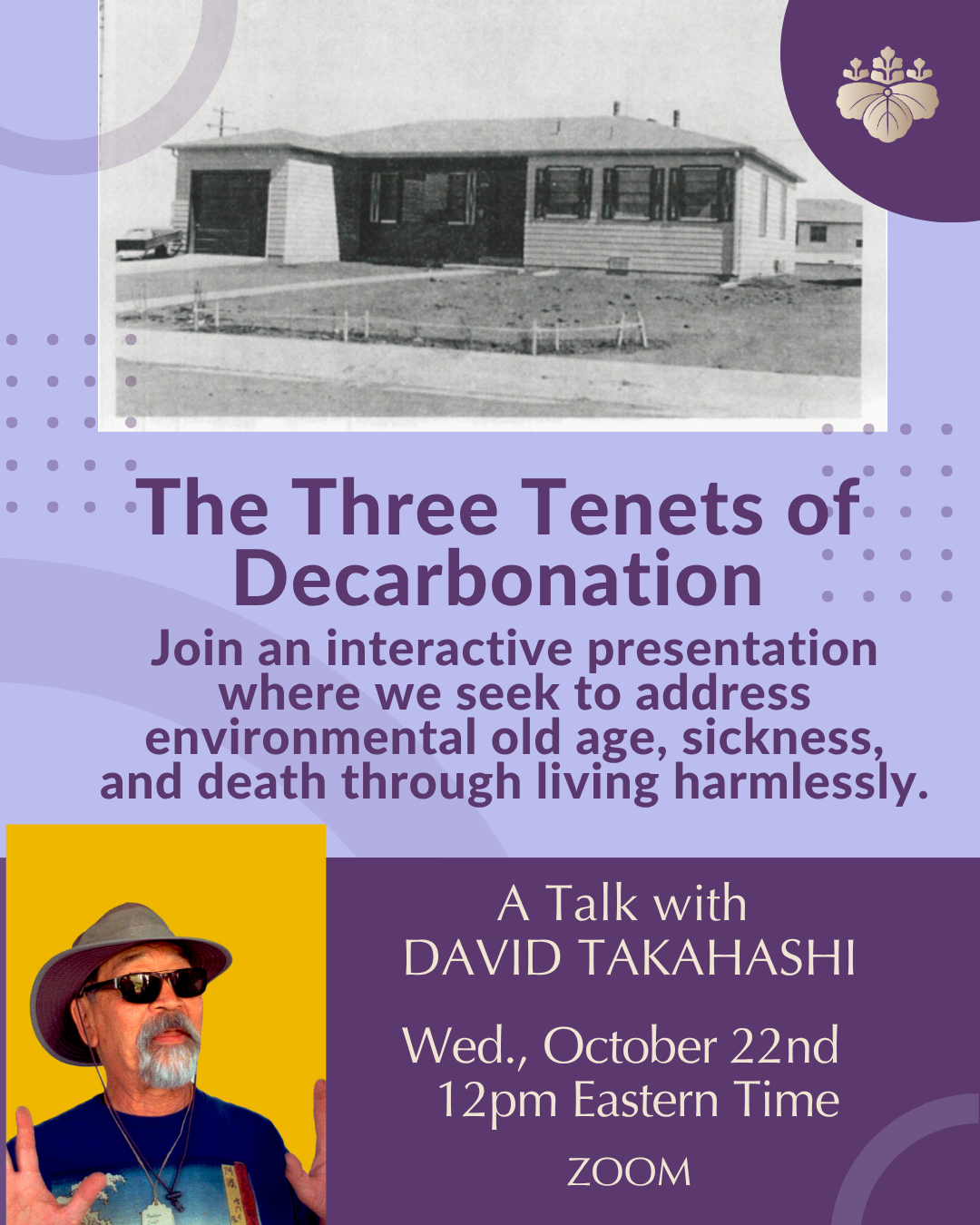
6 Responses
Thank you for doing this.
Inspiring work
thank you, Bernie, for a clear and heartful explanation of why we do this work of retreat, bearing witness, recognizing all our relations – the easy ones and the not-so-easy- ones,
love,
Enkyo
Fantastic. Thank you, Bernie!
Are you aware of the dangerous situation in North Dakota? The Sioux and now pretty much all tribes international are taking a stand to protect the Missouri River, their lands and burial grounds. It is blacked out by media! Please see# No DAPL, # standing rock and help us protect our indigenous as well as our water! Please help!
Thank you Jann. Several of our member visited Standing Rock. Read one report here: https://zenpeacemakers.org/zpi-publishing/when-an-elder-speaks-impressions-from-standing-rock/